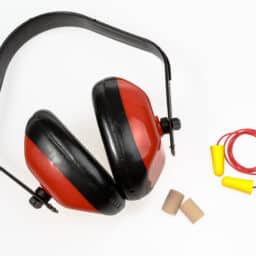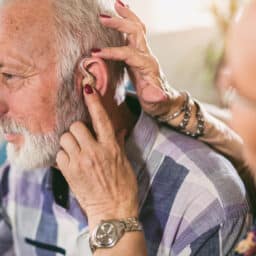Why Annual Hearing Tests Matter

This time of year is an excellent opportunity to set priorities for your health. Beyond New Year’s Resolutions, this is also a time for planning and getting organized. If you haven’t added your hearing health to your list of priorities for the year, this post is your sign to do so. The Importance of Routine…
What Can Damage My Hearing Aids?

Hearing aids are a significant investment, and you want to take care of them. Properly caring for your hearing aids can significantly extend their lifespan. That said, hearing aids are small, delicate pieces of technology and are susceptible to damage, especially since they get used heavily daily. Below are some common hazards that can cause…
How To Watch TV with Hearing Loss

Watching your favorite show at the end of a long day or a movie with your family on the weekend can be challenging for those with hearing loss. Fortunately, advances in modern listening technology have made it possible to enjoy your television easily, even with hearing loss. Should I Wear My Hearing Aids While…
How Often Should I Clean My Hearing Aids?

Your hearing aids are vital pieces of technology, and they’re a significant investment. Routine cleaning and maintenance are critical to keeping them in good working order for as long as possible. It’s recommended that you give your hearing aids a light spot clean every day. A recent survey reported that hearing aid users are staying…
What Is Hearing Aid Feedback and How Can I Fix It?

When your hearing aid speaker produces an irritating, high-pitched sound, it’s likely due to feedback. Hearing aid feedback can sound like whistling, ringing, humming, buzzing or squealing. It happens when the sound produced by the hearing aid speaker escapes the ear canal, where it is then picked up by the hearing aid microphone and reamplified…
How to Choose the Best Hearing Protection for Your Lifestyle

Protecting your hearing doesn’t have to be complicated. By assessing your lifestyle, understanding where you’re most at risk for hearing damage and exploring the options that match your needs, you can safeguard your ears with ease. is here to support you through this process. Assess Your Lifestyle Needs Different activities require different levels of hearing…
Understanding the Difference Between Misophonia and Hyperacusis

Both misophonia and hyperacusis involve an increased sensitivity to sound, but they manifest in different ways. They stem from distinct causes and produce different discomforts. Knowing how they differ can help guide appropriate diagnosis and treatment.What Is Misophonia? Misophonia is a condition where certain everyday sounds trigger intense emotional reactions. These reactions may include feelings…
Understanding the Differences Between Misophonia and Hyperacusis

Misophonia and hyperacusis are conditions that involve heightened sensitivity to sound. However, they have distinct conditions with different triggers and treatments. It’s helpful to understand the differences between the two to seek the right support and symptom management. Consider the following about the conditions. About Misophonia Misophonia is a condition where specific sounds trigger strong…
What Happens During a Hearing Exam?

Hearing tests aren’t just about finding out if you need hearing aids. They provide a complete picture of hearing health and can detect issues that might not be obvious. Let’s take a look at what you can expect from a hearing exam to help you set expectations for your next visit. The Three Types…
What To Know About the Five Stages of Hearing Loss Processing

You’ve probably heard of the five stages of grief: denial, anger, bargaining, depression and acceptance. These five stages, also called the Kübler-Ross model, represent the emotions you go through when processing a loss or tragedy. While the five stages of grief are most often discussed in response to the loss of a loved one, they…
